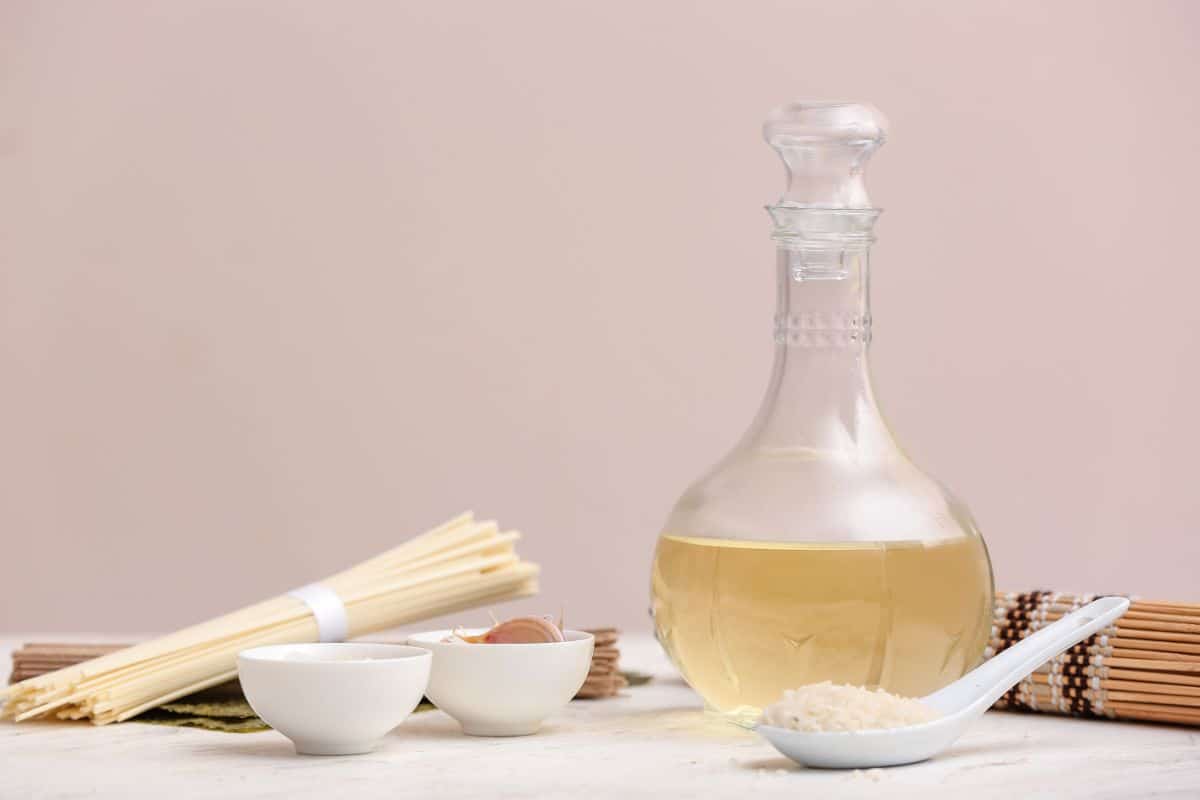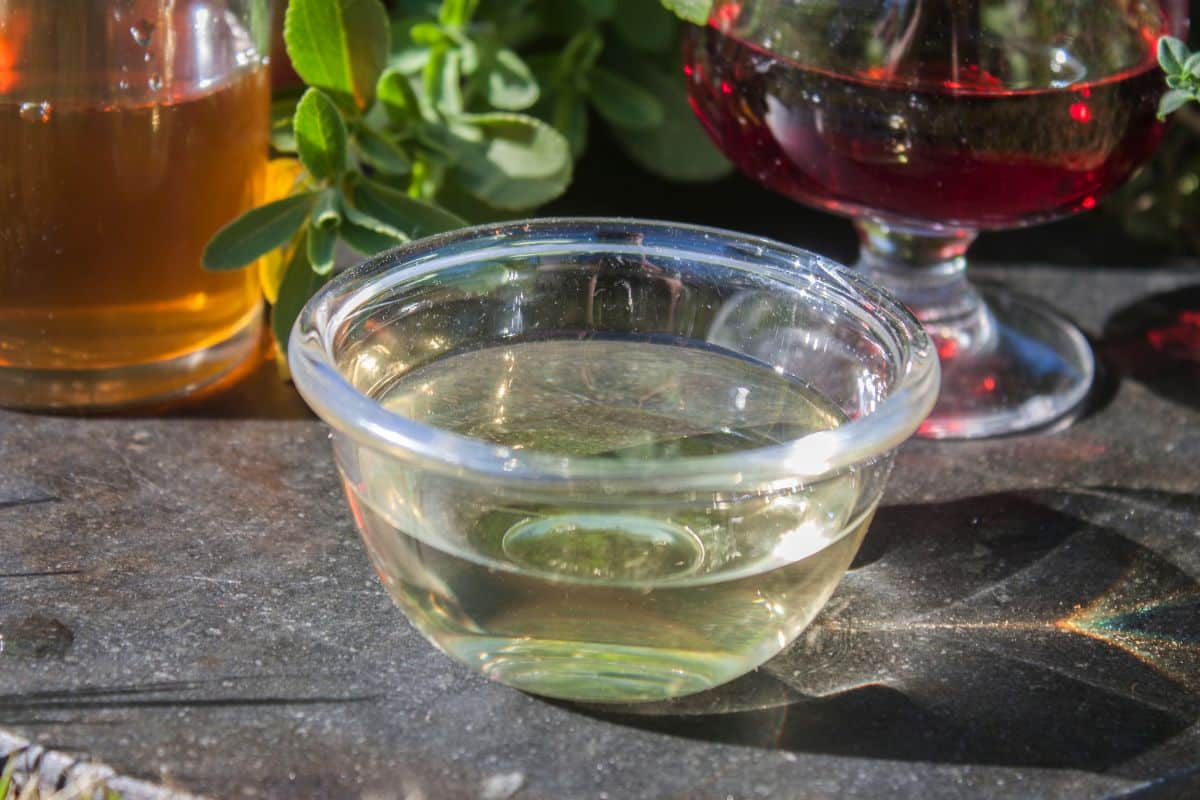Known for its versatile uses in cooking, cleaning, and even natural remedies, vinegar has become a staple in many households. But have you ever wondered if vinegar can freeze like water?

In this article, we embark on an entertaining and informative exploration to find the answer.
While we’re all aware that water freezes at 0 degrees Celsius (32 degrees Fahrenheit), vinegar introduces an intriguing twist to this frozen tale, and we’ll delve into the factors that affect freezing, including impurities and the concentration of acetic acid in vinegar.
But we won’t stop at just the science!
We’ll take you on a journey of experiments and discoveries, unveiling the surprising truth about vinegar’s freezing properties. Along the way, we’ll also debunk common myths and explore the practical applications of vinegar in freezing temperatures.
So, grab your lab coat (or apron) and join us as we unravel the mystery of whether vinegar can truly freeze.
Understanding Vinegar
Vinegar, a versatile liquid with a tangy aroma, has been used for centuries in various cultures for culinary, cleaning, and medicinal purposes, but to comprehend whether vinegar can freeze, we need to look at its composition and properties.
Definition And Composition Of Vinegar
Vinegar is a diluted solution of acetic acid formed through fermentation processes involving fruits, grains, or vegetables.
It typically contains water, acetic acid, and trace amounts of other substances, such as flavor compounds and minerals, and the most common type of vinegar found in households is distilled white vinegar.
However, there are many other varieties like apple cider vinegar, balsamic vinegar, and wine vinegar used that offer distinct flavors and nuances.
Acetic Acid As The Primary Component Of Vinegar
Acetic acid, the key component of vinegar, contributes to its unique properties. It is an organic acid with a pungent smell and a sour taste.
This component plays a crucial role in vinegar’s acidity, flavor, and potential health benefits, while it is also responsible for some of vinegar’s chemical reactions and interactions with other substances.
Factors Affecting Freezing
When it comes to the freezing behavior of vinegar, several factors come into play. Let’s explore these factors to understand why vinegar’s freezing point may differ from that of water.
Role Of Impurities In Freezing Point Depression
Impurities present in vinegar can significantly impact its freezing point. Substances like sugars, minerals, and other organic compounds that accompany acetic acid can lower the freezing point of vinegar.
This phenomenon, known as freezing point depression, occurs when impurities disrupt the orderly arrangement of water molecules during the freezing process.
Concentration Of Acetic Acid In Vinegar
The concentration of acetic acid in vinegar influences its freezing point. Generally, higher concentrations of acetic acid result in lower freezing points.
Different vinegar types have varying concentrations of acetic acid, contributing to differences in their freezing behavior.
For instance, distilled white vinegar typically has a higher acetic acid content compared to milder varieties like rice vinegar.
Other Factors That May Influence Vinegar’s Freezing Point
While impurities and acetic acid concentration are significant factors, other variables can also influence vinegar’s freezing point.
These factors may include the presence of additional additives, the temperature at which the vinegar was stored, and even the pH level of the vinegar.
Is There A Freezing Point For Vinegar?
While water freezes at 0 degrees Celsius (32 degrees Fahrenheit), vinegar showcases a slightly lower freezing point due to the presence of acetic acid and impurities.
The freezing point of vinegar can vary depending on factors like the ones mentioned above, so understanding them is vital in exploring the freezing behavior of vinegar and its applications in different scenarios.
But let’s put on our lab coats (or metaphorical curiosity cap) and venture into the realm of experimentation to uncover the icy secrets of vinegar!
Experimenting With Freezing Vinegar
To investigate the freezing behavior of vinegar, we conducted a series of experiments using different types of vinegar and varying concentrations of acetic acid. Here’s an overview of our experimental setup and methodology:
- Vinegar Selection: We chose a range of vinegar types, including distilled white vinegar, apple cider vinegar, balsamic vinegar, and rice vinegar, to examine their freezing points.
- Sample Preparation: We prepared multiple samples of each vinegar type with varying concentrations of acetic acid. Dilutions were made using distilled water to create different solutions.
- Temperature Control: The experiments were conducted in a controlled environment at a consistent temperature, ensuring accurate measurements.
- Observation and Measurement: Each vinegar sample was carefully observed for signs of freezing, such as ice crystal formation and solidification. The temperature at which freezing occurred was recorded for analysis.
Recording Observations And Measurements

So, how did all these types of vinegar do?
While distilled white vinegar showed signs of freezing at temperatures slightly below the freezing point of water, other vinegar types displayed different behaviors.
Apple cider vinegar and balsamic vinegar exhibited lower freezing points due to their impurities and varying concentrations of acetic acid.
Rice vinegar, on the other hand, displayed a slightly higher freezing point compared to distilled white vinegar.
Results And Analysis Of Freezing Vinegar
Based on our experimental findings, it is evident that vinegar does freeze, albeit at temperatures lower than that of pure water.
Of course, the presence of impurities and the concentration of acetic acid are among those factors that play crucial roles in determining vinegar’s freezing behavior.
In terms of consistency and the lack of it in this case, the variation in freezing points among different vinegar types highlights the impact of factors such as impurity content, acidity, and specific production processes.
Should I Freeze Vinegar?
While vinegar can indeed freeze, the question arises: is freezing vinegar a suitable storage method? Let’s see!
Effects On Quality
Freezing vinegar can potentially impact its quality since during freezing, water molecules in vinegar form ice crystals, which may cause changes in texture and potentially alter the taste.
Not only that, but repeated freezing and thawing cycles can lead to further degradation in quality!
Separation And Texture Changes
Freezing vinegar can also result in the separation of its components.
Acetic acid and water may separate during freezing, causing a change in texture and appearance, but this separation can be remedied by thoroughly shaking or stirring the vinegar after thawing.
Freezing For Specific Purposes
While freezing vinegar as a storage method may not be ideal for general use, there are specific scenarios where freezing can be advantageous.
For example, freezing vinegar in ice cube trays can be useful for preserving small portions for culinary applications, such as adding a tangy kick to sauces, dressings, or marinades.
It’s important to note that freezing vinegar should be done with caution, considering the potential changes in quality.
If the goal is long-term preservation without compromising taste and texture, alternative storage methods are preferable.
What’s The Best Way To Store Vinegar?
So, if freezing vinegar is not the best way to store and preserve its quality, what’s the best way and practices to do it?
Choose The Right Container
First of all, selecting the appropriate container for storing vinegar is crucial, so try to go for glass or food-grade plastic bottles or jars with tight-sealing lids.
Avoid containers made of reactive materials like metal, as they can affect the vinegar’s taste and quality over time.
Keep It Cool And Dark
Vinegar is sensitive to light and heat, so store it in a cool, dark place away from direct sunlight and heat sources, such as stoves or radiators. A pantry or cupboard is an ideal location for long-term storage.
Seal Properly
Ensure that the container is tightly sealed to prevent air from entering and affecting the vinegar. Exposure to air can lead to oxidation and a decline in flavor and quality.
If using a bottle with a cork or screw cap, make sure it is securely closed after each use.
Avoid Temperature Fluctuations
Fluctuating temperatures can impact vinegar’s stability and taste, so aim for consistent storage temperatures, ideally between 10 and 21 degrees Celsius (50 to 70 degrees Fahrenheit).
Use Within A Reasonable Time Frame
Finally, while vinegar has a long shelf life, it is best to use it within a reasonable period for optimal flavor and quality.
Vinegar can maintain its quality for several years if stored properly, but its flavor profile may gradually diminish over time, so it’s advisable to use it within a year or two for the best taste experience.
The Bottom Line
Vinegar, with its primary component acetic acid, does indeed freeze, but at temperatures lower than water, and factors such as impurities and acetic acid concentration play a role in determining vinegar’s freezing point.
While freezing vinegar for storage may not be the best option, alternative methods like proper sealing and storage in a cool, dark place ensure its longevity and quality. Still, next time you ponder whether vinegar can freeze, know that the answer is a resounding yes!







